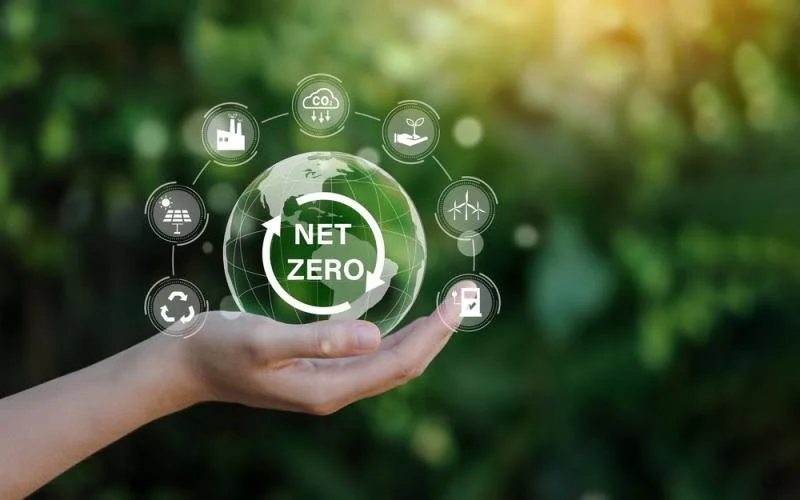Understanding Science-Based Targets: A Path to Sustainable Business Growth
How Science-Based Targets Help Businesses Achieve Sustainability and Growth.
Imagine setting a course on a ship without a clear destination or map. You might make progress, but without knowing where you're headed, it’s easy to veer off course. For businesses aiming to combat climate change, Science-Based Targets (SBTs) create the map that guides meaningful and measurable action toward sustainability.
Science-Based Targets, or SBTs, are a critical tool for companies committed to reducing greenhouse gas (GHG) emissions. Rooted in climate science, these targets align with the goals of the Paris Agreement to limit global warming to 1.5 degrees Celsius.
For SMB owners aiming to win contracts with companies like Microsoft and embrace sustainability through carbon accounting, the power to enact global change lies in integrating corporate social responsibility (CSR) into operations. Let’s explore how small businesses can contribute to global change and why their role is essential.
What Are Science-Based Targets?
Science-Based Targets are clearly defined goals that businesses set to reduce their GHG emissions in line with the latest climate science. Unlike generic sustainability pledges, SBTs are grounded in rigorous scientific frameworks to ensure that the reductions contribute meaningfully to combating climate change.
The concept revolves around aligning corporate strategies with global climate goals, particularly the need to reduce global emissions by 45% by 2030, as highlighted by the Intergovernmental Panel on Climate Change (IPCC). This reduction is crucial to preventing irreversible climate damage and ensuring a stable environment for future generations.
Why Do Science-Based Targets Matter?
Combatting the Worst Impacts of Climate Change
The consequences of unchecked global warming ie. extreme weather, rising sea levels, and biodiversity loss, pose significant risks to societies and businesses alike.Ensuring Business Growth
Contrary to the misconception that sustainability stifles growth, setting SBTs can unlock new opportunities. Companies that proactively address climate change attract environmentally conscious consumers, investors, and partners, enhancing brand loyalty and market competitiveness.Stakeholder Demands
Today, stakeholders including investors, customers, and employees, expect companies to take measurable action on sustainability. Many large enterprises now require their supply chain partners to set SBTs, creating a ripple effect across industries.
The Paris Agreement and Science-Based Targets
The Paris Agreement, adopted in 2015, aims to limit global temperature rise to well below 2 degrees Celsius, with efforts to stay within 1.5 degrees Celsius. Science-Based Targets play a pivotal role in achieving this vision by translating broad climate goals into actionable steps for businesses.
SBTs help companies:
Quantify Impact: Identify and measure their emissions across Scopes 1, 2, and 3.
Strategize Effectively: Develop a clear roadmap for emissions reductions.
Stay Accountable: Track progress and adjust strategies based on scientific benchmarks.
By aligning with the Paris Agreement, companies demonstrate their commitment to global sustainability efforts while future-proofing their operations against regulatory and reputational risks.
How to Set Science-Based Targets
Measure Your Baseline
Start by assessing your current GHG emissions. Use carbon accounting tools to identify emissions sources across direct operations (Scope 1), purchased energy (Scope 2), and supply chains (Scope 3).Set Clear Goals
Collaborate with frameworks like the Science-Based Targets initiative (SBTi) to define reduction targets that align with your industry and business model.Implement and Innovate
Adopt energy-efficient technologies, transition to renewable energy, and optimize supply chain practices to meet your targets.Engage Stakeholders
Communicate your goals and progress to employees, customers, and investors to build trust and foster collaboration.Monitor and Report
Regularly track your emissions data and publish transparent reports to showcase your commitment and progress.
Ready to Level Up Your Commitment?
Setting Science-Based Targets is not just an environmental responsibility, it’s a strategic opportunity to drive growth, resilience, and stakeholder trust. Whether you’re inspired to take proactive steps or responding to stakeholder requests, the journey toward sustainability begins with a clear plan.
At RyeStrategy, we specialize in helping businesses develop and implement effective decarbonization strategies, including setting Science-Based Targets. Let us guide your company toward measurable, impactful, and scalable sustainability practices.
Final Thoughts: Is Your Business Ready for the Challenge?
Achieving Science-Based Targets requires effort, innovation, and accountability, but the rewards are undeniable. By aligning with climate science, companies protect both the planet and their future growth.
Learn about our affordable carbon footprint solutions for small and medium-sized businesses
Book a free strategy session to discuss your climate goals with a sustainability manager.
About RyeStrategy
Based in Seattle, RyeStrategy is a CDP-accredited, mission-oriented company specialized in carbon accounting, mitigation coaching, and climate disclosure solutions for organizations at any point in their sustainability journey. Learn how RyeStrategy helped Salesforce, Ideascale, and Wazoku achieve their sustainability goals.
From exhaustive carbon footprinting and mitigation coaching, to setting science-based targets and reporting climate data to CDP, SBTi or custom reporting platforms, RyeStrategy acts as a hands-on extension of the team, custom-tailoring services to fulfill climate disclosure requirements easily and accurately.
Meet with a sustainability specialist to learn more about RyeStrategy solutions.

